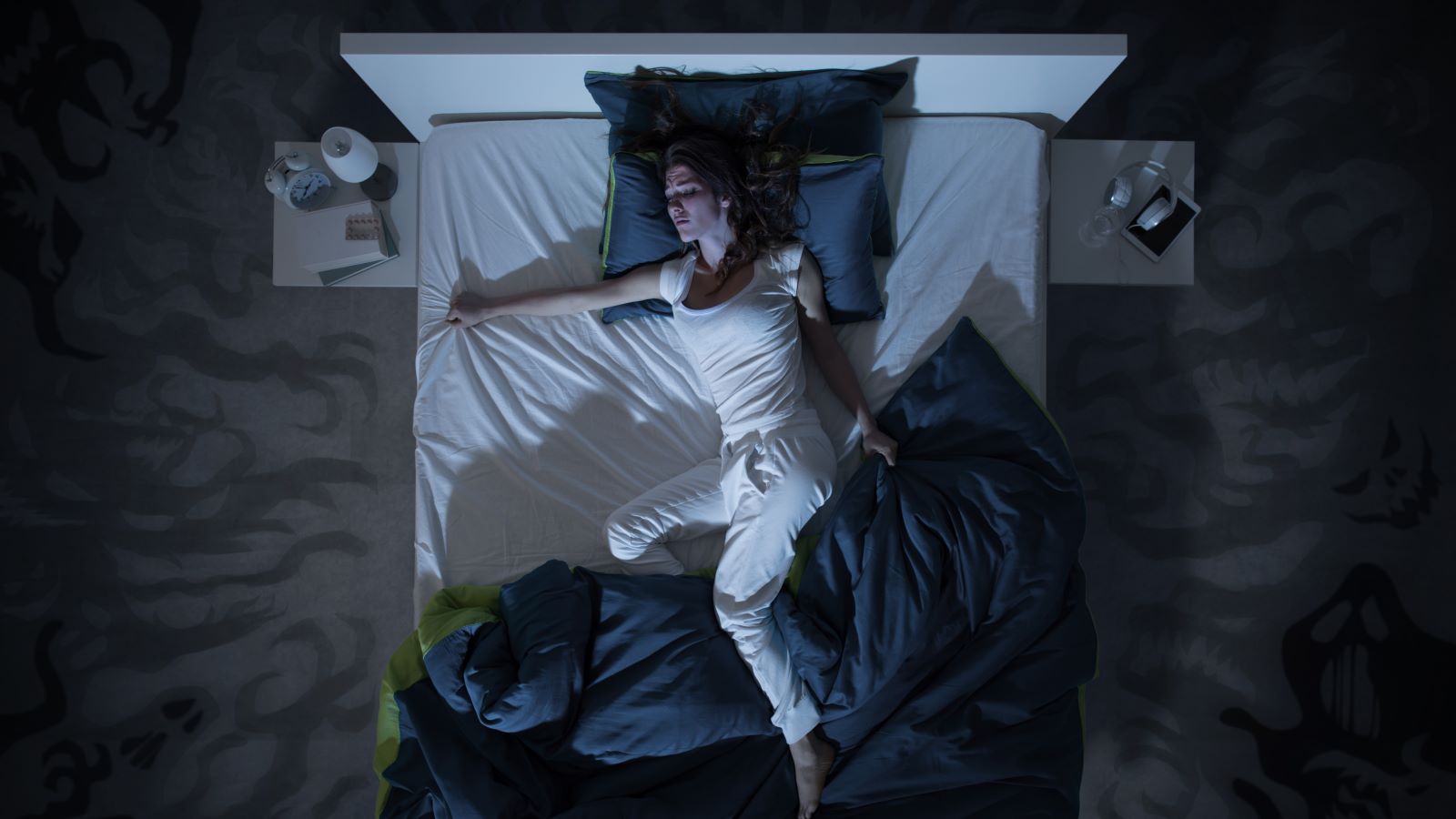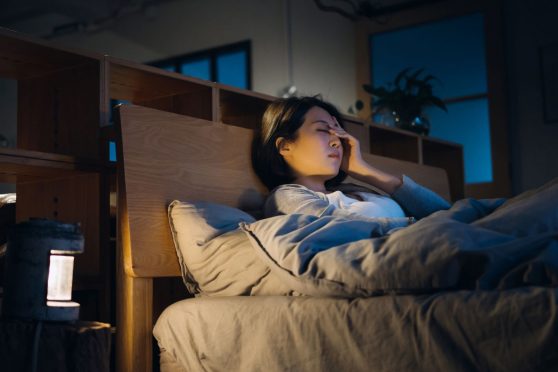If you’re nightly routine involves a battle over where to set the thermostat, we have some good news — there’s a clear winner.
We asked Pantcho G. Maslinski, MD, a sleep specialist with Hartford HealthCare’s Ayer Neuroscience Institute Sleep Center at Windham Hospital, what the ideal temperature is to sleep in.
Connect with a sleep disorders specialist
Here’s how temperature affects your sleep quality.
After sunset, your body gets ready for rest. And part of that process is cooling itself down.
“Our body temperature follows a daily rhythm,” explains Dr. Maslinski. “As bedtime approaches, a drop in core and brain temperature helps signal that it’s time to sleep.”
As our temperature drops, a few key other things happen:
- Melatonin increases as core temperature lowers, providing that feeling of sleepiness.
- Blood vessels in your hand and feet widen to help cool your core and promote sleep.
- Blood flow continues to adjust to keep body temperature regulated.
And if things get thrown off?
“Temperature greatly affects how well we sleep,” says Dr. Maslinski. “Disrupting this temperature cycle can lead to insomnia.”
> Related: Do Cooling Sheets Really Work?
Does the perfect temperature exist?
The short answer is yes.
“Keeping your sleep environment cool is essential for quality rest,” explains Dr. Maslinski. “Your body naturally cools down before and during sleep, so maintaining this process helps you sleep better.”
Need actual numbers?
Here are the ideal temperatures for a great night of sleep:
- The best room temperature for sleep is between 66 to 72°F.
- Your skin should ideally be between 88 to 95°F during sleep.
- The temperature under your bed covers should be around 90 to 93°F with 40% to 60% humidity.
Heat impacts your sleep in a number of different ways.
While we all like to be cozy at night, you may want to think twice about that extra comforter.
“Your body doesn’t adapt to sleeping in a hot environment even after several days,” says Dr. Maslinski.
Heat can negatively impact your sleep in different ways, including:
- Waking more frequently
- Less rapid eye movement (REM) sleep, crucial for dreaming and cognitive functions.
- Reduced slow-wave sleep (deep sleep) makes it hard to feel restored in the morning.
And those sticky summer nights can be especially disruptive.
“Humid heat makes it harder to sleep because it disrupts your body’s ability to regulate temperature and sweat effectively,” adds Dr. Maslinski.
Keep cool (but don’t forget blankets).
Studies show that with proper bedding, sleeping in temperatures between 55°F to 73°F doesn’t affect sleep quality.
“Even if you don’t feel the cold disturbing your sleep, your cardiovascular system might still be affected,” cautions Dr. Maslinski.
Maintain indoor temperatures above 50°F during winter and stay comfortable year-round with the right bedding.
4 tips to get those ZZZs.
Sleep is essential for our health, in more ways than one.
“Poor sleep at night not only impacts your daytime activities,” says Dr. Maslinski. “It’s also linked to health issues like obesity, reduced quality of life and even increased mortality.”
If you’re having trouble sleeping, skip counting sheep and try these tips from Dr. Maslinski:
- Take a warm bath before bed (but not immediately before) to fall asleep faster and improve sleep quality.
- Use bedding and sleepwear that keeps your skin temperature stable by retaining heat when it’s cold and allowing sweat to evaporate when it’s hot.
- If air conditioning is limited, use it during the first part of the night to reduce the impact of heat.
- If you’re restless, try adding some background noise into the mix.
Still can’t fall asleep?
While a comfortable sleep environment is part of the puzzle, it’s not the whole picture.
“If you’re having trouble sleeping, see your doctor,” advises Dr. Maslinski. “We can help identify the cause and get you on the path to a better night’s rest.”



